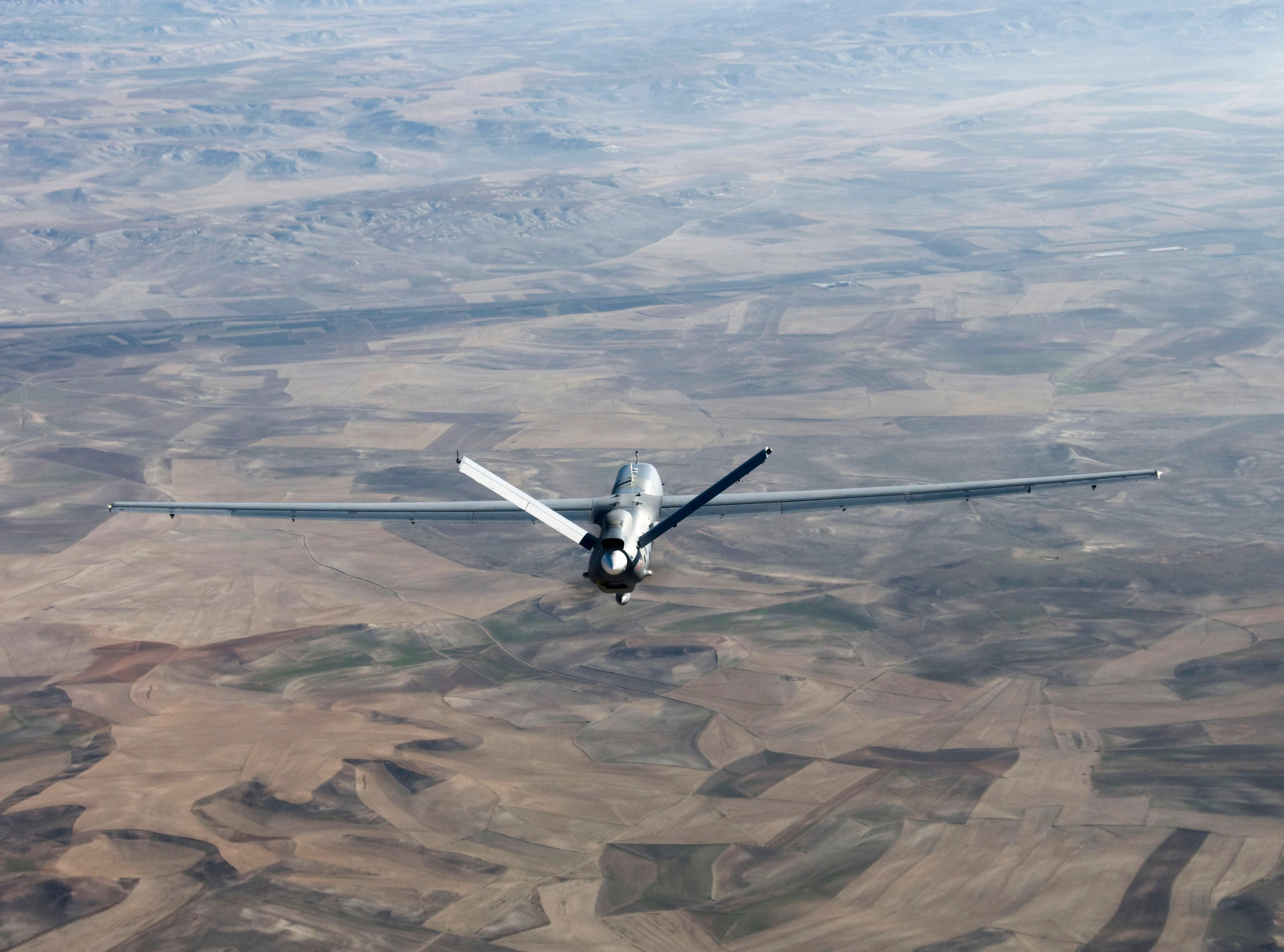DUBAI, United Arab Emirates — After less than a year of development, a new extended-wing, armed version of the Karayel UAV by Turkey-based Vestel Defence Industry made its international debut among the static displays at this week’s Dubai Airshow.
With a 13-meter wingspan and an endurance of eight hours when fully armed with a 120-kilogram payload, the Karayel-SU is the latest in a family of UAVs built by Vestel for the Turkish Armed Forces and the export market.
“We are focusing our marketing efforts on the Middle East and Africa region, and we are beginning efforts to secure our first export customer,” Oner Tekin, Vestel’s general manager, told Defense News.
Vestel executives said the armed and unarmed shorter-winged (10.5-meter wingspan) versions of the automated takeoff and landing Karayel UAV have flown a total of some 3,000 hours, primarily through a power-by-the-hour-type leasing arrangement with the Turkish Armed Forces. The extended-wing version is not part of that agreement.
Without weaponry, the new extended-wing aircraft carries a 50-kilogram day/night sensor in its fuselage bay and is designed to fly for a constant 20 hours at altitudes reaching 18,000 feet.
“We have a contract to give them services, and were proud that our aircrafts have flown more than 3,000 flight hours without incident,” Tekin said of the earlier-model unarmed Karayel and lightly armed Karayel-S.
RELATED

Flight tests on a partially weaponized Karayel-SU are set to begin in January 2018, said Suha Dinner, the firm’s deputy general manager. “We will commence fight tests with weapons on two of the four hard points the first week of January.”
Vestel executives said weaponry by Ankara-based Roketsan has already been integrated on the four hard points under the wing and that armed flight tests will begin soon. The UAV displayed here for the first time outside of Turkey was shown with two types of miniaturized, anti-tank missiles ― the MAM-L and the laser-guided MAM-C ― developed by Ankara’s state-owned Roketsan.
Hudai Ozdamar, Roketsan’s director for market development, said the firm’s miniature smart munitions ― both capable of striking targets within an 8-kilometer range – are optimized to meet what he characterized as a growing global demand for unmanned precision-strike capabilities.
“All the armies are interested in combat UAVs, and it’s only a matter of time until we see this interest translate into export sales,” Ozdamar said.
He added that Roketsan is supplying its miniature missiles to all three Turkish firms now manufacturing UAVs: Turkish Aerospace Industries, Baykar Machine and Vestel. And because the missiles are completely indigenous, Ozdamar said export licensing issues are not a problem to end users approved by the Turkish Ministry of Defence.
“The UAV companies supply their UAVs, and we are arming them. We try to design all our systems to be self-sufficient. We don’t want to be limited by export licensing restrictions,” he said.
The MAM-L, a motorless version of Roketsan’s laser-guided, long-range, anti-tank missile, was declared operational by the Turkish Army in the past year. The smaller caliber MAM-C, which first debuted at the International Defence Industry Fair in Istanbul last May, is undergoing final developmental tests and should be operational “in some months’ time,” he said.
Both are offered in high explosive and tandem penetrating warhead versions.
As for Vestel’s newest Karayel-SU UAV, executives in Dubai indicated their first export customer could be Saudi Arabia. The firm signed a memorandum of understanding earlier this week at the Dubai Airshow with Saudi Arabia’s Advanced Electronics Company for purposes of “collaboration and localization,” details of which they declined to elaborate.
Opall-Rome is Israel bureau chief for Defense News. She has been covering U.S.-Israel strategic cooperation, Mideast security and missile defense since May 1988. She lives north of Tel Aviv. Visit her website at www.opall-rome.com.






